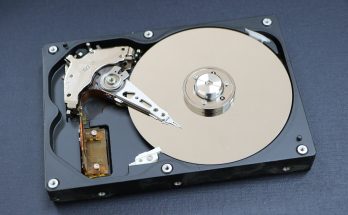Top 10 Tips for Preventing Motor Failures can save you time and money. Motor failures can lead to downtime and frustration. In this article, we will explore simple ways to keep your motors in great shape. Let’s dive in!
What Causes Motor Failures?
Motor failures can happen for many reasons. Here are some common causes:
- Overheating: This is a major issue.
- Poor maintenance: Neglect can lead to problems.
- Electrical issues: Bad connections can cause failures.
- Mechanical problems: Wear and tear can affect performance.
Understanding these causes helps you prevent them.
Tip 1: Keep Motors Clean
Dirt and dust can harm motors. They block air vents and cause overheating. To prevent this, clean your motors regularly. Use a soft cloth to wipe away dirt. Don’t forget to clean around the vents too!
Tip 2: Check for Signs of Wear
Always check your motors for signs of wear. Look for:
- Unusual noises: This can indicate a problem.
- Vibration: Excessive vibration is a red flag.
- Overheating: If it feels hot, check it out.
If you notice any of these signs, act fast. Fix problems before they lead to failure.
Tip 3: Lubricate Regularly
Lubrication is key to motor health. It reduces friction and heat. Make sure to lubricate moving parts. Use the right type of lubricant for your motor. Check the manufacturer’s guidelines for best practices.
Tip 4: Monitor Electrical Connections
Loose or damaged electrical connections can cause problems. Regularly check wiring and connectors. Ensure everything is secure and in good condition. Replace any damaged wires immediately.
Tip 5: Use the Right Voltage
Using the wrong voltage can damage your motors. Make sure your motors get the voltage they need. Check your power supply regularly. This simple step can prevent serious issues.
Tip 6: Protect from Overheating
Overheating is a major cause of motor failure. Ensure your motors have proper ventilation. Consider installing cooling systems if needed. Also, avoid placing motors in hot environments.
Tip 7: Schedule Regular Maintenance
Regular maintenance is crucial. Create a maintenance schedule for your motors. Include tasks like cleaning, lubrication, and inspections. This proactive approach can save you time and money in the long run.
Tip 8: Train Your Staff
Your staff should know how to care for motors. Provide training on proper operation and maintenance. Knowledgeable employees can spot problems early. This can help prevent failures before they start.
Tip 9: Use Quality Components
Investing in quality components pays off. Lower-quality parts can lead to failures. Use reputable brands and check for certifications. Quality parts are more reliable and last longer.
Tip 10: Keep a Backup Plan
Even with the best prevention, failures can still happen. Have a backup plan in place. This could include spare motors or a reliable repair service. Being prepared can reduce downtime and keep your operations running smoothly.
Conclusion
Preventing motor failures is essential for smooth operations. By following these Top 10 Tips for Preventing Motor Failures, you can protect your equipment from unnecessary breakdowns.
Regular maintenance, proper training, and quality components are key. Remember, a little effort goes a long way in ensuring your motors stay healthy and functional.
FAQs
1. What is the most common cause of motor failure?
The most common cause of motor failure is overheating. Keeping motors clean and well-ventilated can help prevent this.
2. How often should I perform maintenance on my motors?
It’s best to perform maintenance at least once every three months. However, higher use may require more frequent checks.
3. Can I fix a motor failure myself?
Some minor issues can be fixed at home. However, for serious problems, it’s best to call a professional.



